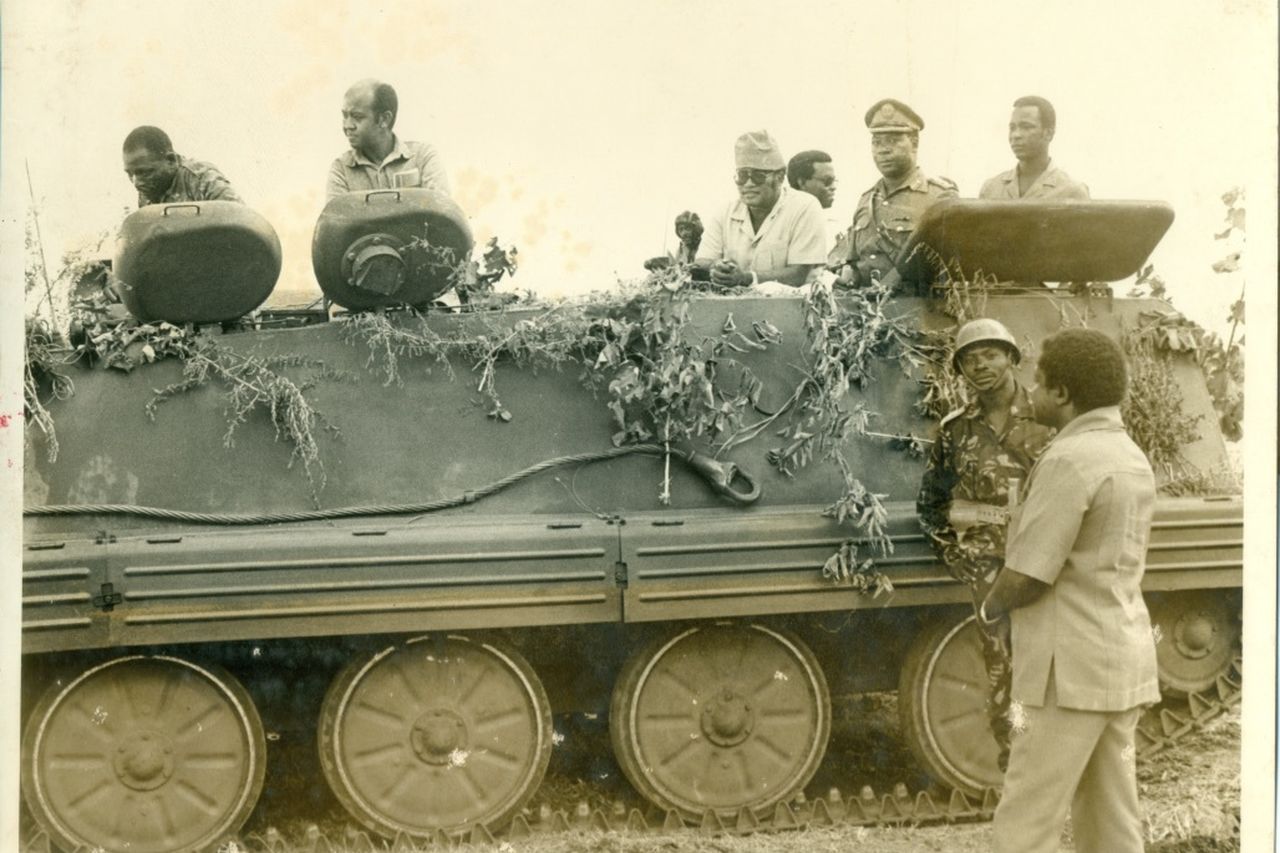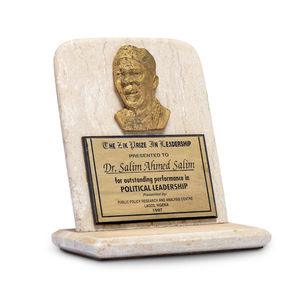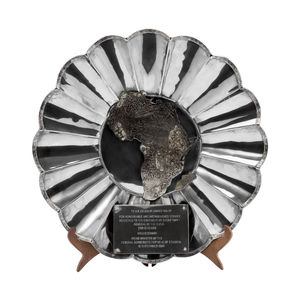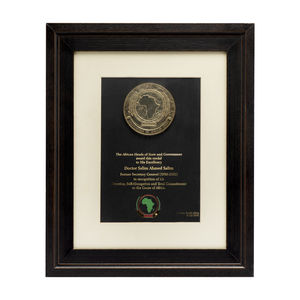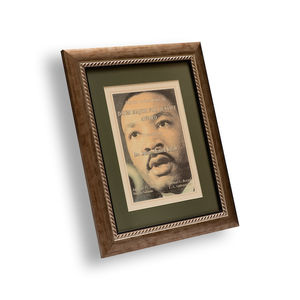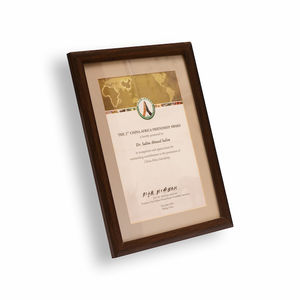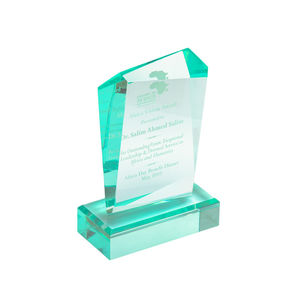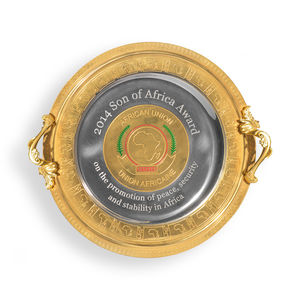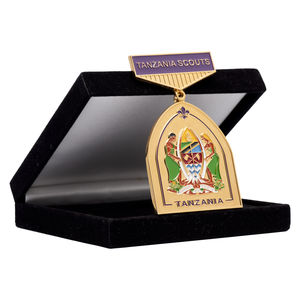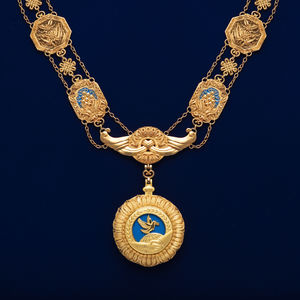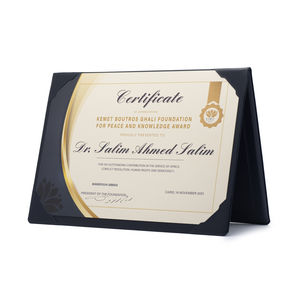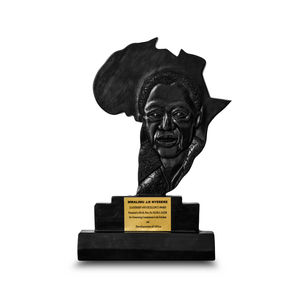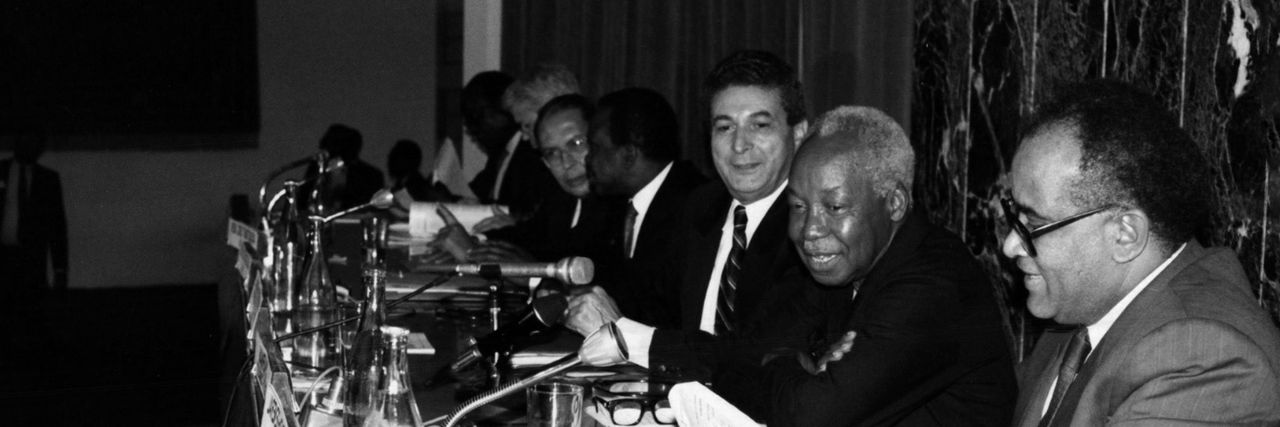
Salim Ahmed Salim is a Tanzanian politician and diplomat who has worked in the international diplomatic arena since the early 1960s
Biography Summary
Dr. Salim Ahmed Salim was born on 23 January 1942 at the Mwembeladu hospital in Unguja, son of Bi Maryam Ali Ahmed Riyami and Mzee Ahmed Salim Bin Ali.
Dr. Salim’s sense of duty and leadership was instilled in him at a young age through his family and his upbringing. He lost his mother when he was very young but was only informed about her death nearly three years after her passing (for some time he was led to believe that his late mother was performing her pilgrimage in Makkah). This had a devastating impact on the young Salim, but saw him learn fast and adapt to challenges that were thrown at him.
He was forced to grow up quickly, and given that he was the eldest in his family, his sense of responsibility towards his family and his community was sealed. Despite having different mothers, Dr. Salim’s closeness to his brothers and sisters was unmatched, and this feeling of unity was reinforced by his father and his grandfather.
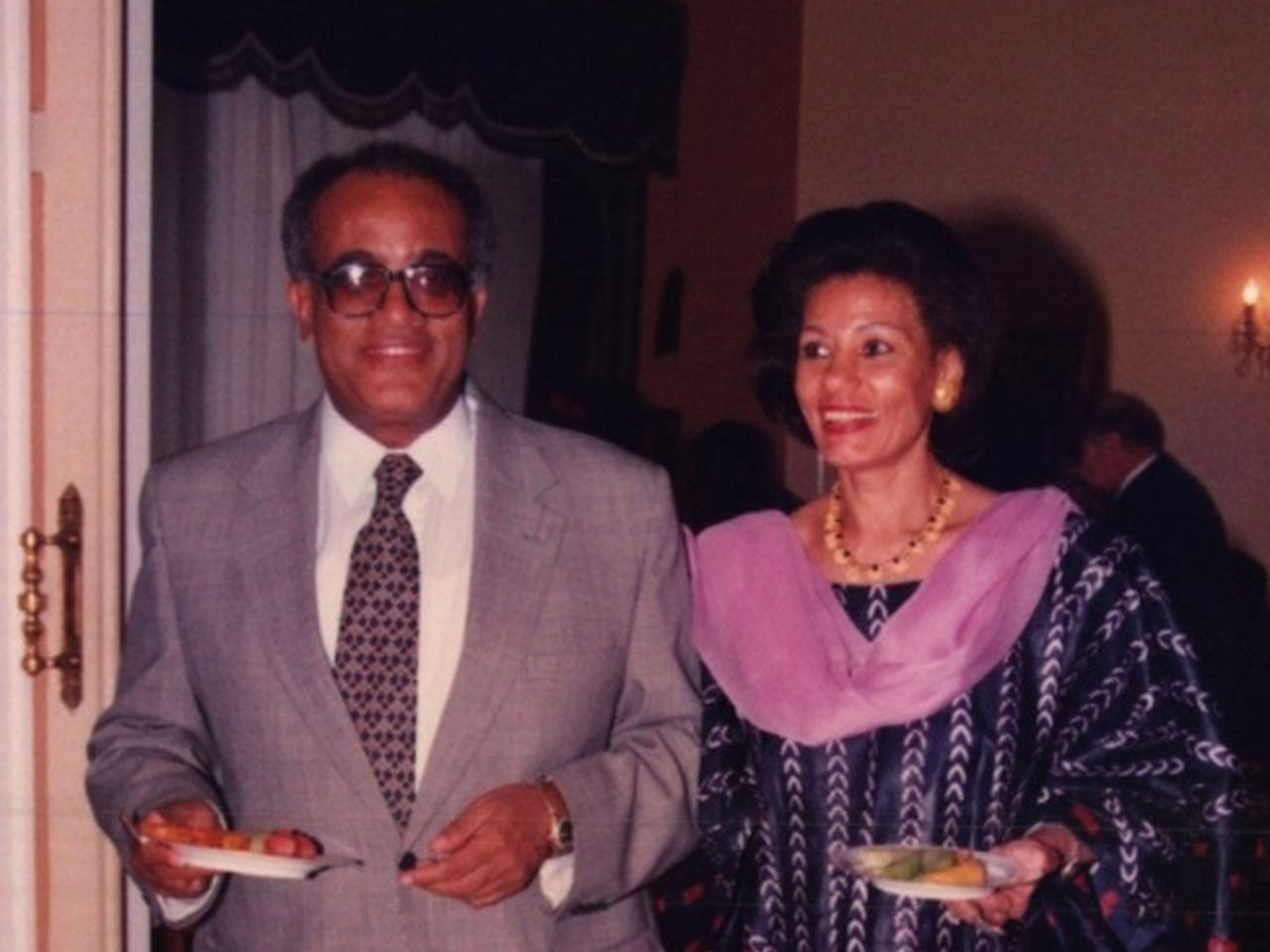
Dr. Salim attended Uweleni Primary School in Mkoani from 1948 to 1956. He joined the Scouts movement in Standard 6, where he was introduced to essential life skills, learning specifically service to the community. The movement had a great influence in shaping his values and leadership skills.
In 1957 Dr. Salim was among three students from the entire island of Pemba to be selected from the Standard 8 class in the province to pursue secondary education at the Government Boys' Secondary School (now known as Ben Bella Secondary) on the main island of Unguja. Dr. Salim stayed at the school for one year, after which he attended King George VI Secondary School (later named Lumumba College) until 1960.
Early Political Activism
Dr. Salim’s activism and political drive began in secondary school, particularly his sense of rebellion. His fight against colonialism began in the classroom when he wrote an essay titled “Colonialism has brought more harm than good in Africa” as part of a broad assignment for students to pick their own topic. In his second year in secondary school, Dr. Salim, along with his fellow students, started a student organisation called the All Zanzibar Students' Union, and he became concerned with and interested in student welfare and youth activism.
It was during this period that Dr. Salim first met Mwalimu Julius Nyerere when Nyerere visited Zanzibar as part of the Pan-African Freedom Movement of East and Central Africa delegation. Though it was a short engagement, it was the beginning of Dr. Salim's political commitment to the union between Zanzibar and Tanganyika, and also his admiration for and loyalty to Nyerere.
By his third year in secondary school Dr. Salim was attending political rallies involving the Zanzibar Nationalist Party (ZNP) and was later approached to become the secretary-general of the youth wing of the ZNP (the Youth Own Union). He was 17 when he became secretary-general. It was during this period that Dr Salim became fully immersed in the anti-colonialism movement.
It was Abdulrahman Babu, the revolutionary leader and intellectual, who recruited Dr Salim to join the ZNP, and thus began the young activist's political career. In June 1961 Dr. Salim was selected to go to Cuba to open an office for the ZNP to advocate for Zanzibar's independence and to connect and build a network among fellow comrades. Dr Salim stayed in Cuba from June 1961 to April 1962. It was while in Cuba that Dr Salim had his first exposure to the anti-apartheid movement in South Africa and was introduced to comrades from the African National Congress and South African Communist Party.
The pre-revolution Zanzibar period saw Dr. Salim confronted with a challenging domestic situation at home, with tensions running high within the ZNP and across the isles. Additionally, in his role as secretary of international relations for the party he visited London, New York (where he and his delegation would appear in front of the UN Committee as petitioners), Egypt, Ghana, Mali, Guinea and Morocco. This was all during a span of four months, between August and October 1962.
The political situation in Zanzibar was tense, particularly within the ZNP as well as among elements of the Afro-Shirazi Party. Members of the ZNP who were against the direction of the party and the extreme views of conservatives decided to form a new party, led by Babu, which Dr. Salim also joined. The vision was to have a more inclusive party geared towards a new nature of politics in Zanzibar.
However, leaving the ZNP was not inconsequential for Dr. Salim, both personally and professionally: he and his fellow Umma Party members were subjected to all sorts of allegations and insults, which also permeated his relationship with some family members. Despite the challenges, Dr. Salim felt strongly about the move and saw another path open for him – this included working with future president of Zanzibar Abeid Karume while Dr. Salim was executive secretary of the United Front of Opposition Parties (Sauti ya Vyama Tisa), which was a coalition of opposition parties with Karume as the chairman.
During the Zanzibar Revolution Dr. Salim was in China assisting with translations of a pictorial publication of Chinese history into Kiswahili. He was there from December 1963 to March 1964 and this marked his second trip to China. The revolution changed the trajectory of Zanzibar forever – the Zanzibar that Dr. Salim left and the one he found on his return were dramatically different.
Diplomatic Career
After Dr. Salim returned from China to the post-revolution Zanzibar, Karume, the leader of the revolutionary government, wanted him to serve as ambassador. And so his diplomatic career began at the age of 22 (Dr. Salim had wanted to remain in Zanzibar given the fast-moving developments, but was posted to Egypt). Dr. Salim arrived in Cairo on 20 April 1964 to report as the new representative of the People’s Republic of Zanzibar. However, he was not able to acquire his ambassadorship – on 26 April 1964 Zanzibar and Tanganyika merged to form a union and Dr. Salim, with his credentials ready to be presented on behalf of Karume and Zanzibar, had to return to Dar es Salaam.
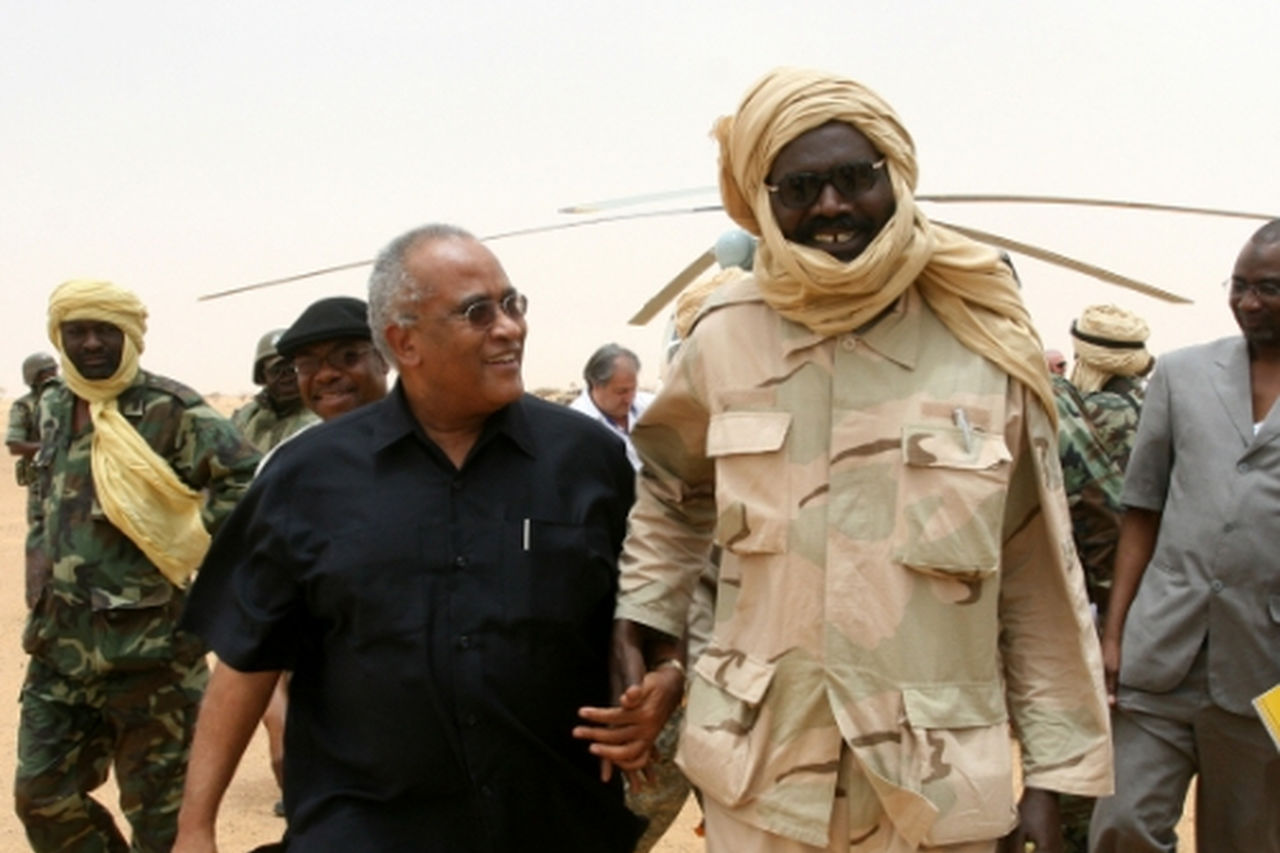
In June of 1964 all foreign representatives of Zanzibar and Tanganyika were called back to Dar es Salaam. It was then that Dr Salim was officially appointed by President Nyerere to become the first ambassador of the Union of Zanzibar and Tanganyika, to Egypt. In July Dr Salim returned to Cairo and presented his credentials to President Gamal Abdel Nasser. With limited protocol training, Dr Salim had to learn to be a diplomat on the job, along with his wife, Amne Rifai Salim, who he had married shortly before travelling to Egypt. They became a young diplomatic couple representing a new country.
Dr. Salim’s tenure in Egypt was not very long – in March 1965 was transferred to India as ambassador. His posting in India lasted three years and he travelled extensively throughout the country in order to learn more about the host government. India was an educational journey for Dr. Salim, both in terms of developing his professional career as a diplomat and advancing his education (he obtained a bachelor’s degree from the University of New Delhi).
By April 1968 Dr. Salim had been called to serve back in Dar es Salaam, taking the position of director of African affairs at the Ministry of Foreign Affairs. Much of his time here was focused on explaining the government’s position when it recognised the independence of Biafra (on 13 April 1968). It was a controversial decision and one that Dr. Salim had to help decision-makers navigate.
In April 1969 Nyerere appointed Dr. Salim Tanzania’s ambassador to the People’s Republic of China. He arrived in China at a critical time for the country, during the Great Proletarian Cultural Revolution. When he arrived, the Ninth National Congress of the Chinese Communist Party was taking place and he had the opportunity to meet and engage with some of China’s top leadership, including Chairman Mao and Chou en Lai.
Although the posting was short, China had an unequivocal impact on Dr. Salim. At the time there were only 10 African missions in China, and the relationship between China and Tanzania was deep. This was further strengthened by Dr. Salim’s engagements there, particularly with Premier Chou en Lai. Such ties also allowed Dr. Salim unfettered access to visit parts of the country that only a handful of foreign diplomats had the privilege of doing at the time.
Dr. Salim’s posting was cut short due to the unexpected death of Tanzania’s permanent representative to the United Nations, Ambassador Akili BC Daniel. So, in December 1969 at 27 years old, Dr Salim left China for New York, where his career on the global international stage began.
Dr. Salim’s tenure at the United Nations, from 1970 to 1980, took his international career to new heights. The decade was a tumultuous time in terms of the Cold War and geopolitical battles, which were largely played out at the United Nations. While at the UN not only did Dr. Salim represent his country, but he promoted and fought for the ongoing liberation struggles across Africa, mediated tensions among global powers, and fought for the independence of a number of countries internationally.
In a 10-year period, Dr. Salim served as chairman of the Special Committee on Decolonisation; president of the UN Security Council, in January 1976; president of the 34th UN General Assembly; and contested to become the UN secretary-general – all while also representing his country in Cuba, Barbados, Jamaica, Trinidad and Tobago, and Guyana. There were also the intangibles, such as trying to intervene on behalf of and pleading for the release of American hostages in Iran.
Dr. Salim’s herculean efforts to restore China’s rightful seat at the United Nations in October 1971 remains one of his long-lasting impacts while at the United Nations – keeping a coalition of African and Asian delegates together against a formidable United States diplomatic machinery, which opposed China’s reinstatement at the UN, was no small feat. Depending on who you asked, Dr. Salim became the most despised ambassador in the United States, but a hero in China. The onslaught of hate mail was relentless, as was the negative public campaign – but that did not dissuade Dr. Salim nor did it rattle him. It did, of course, cost him the UN secretary-general seat a decade later.
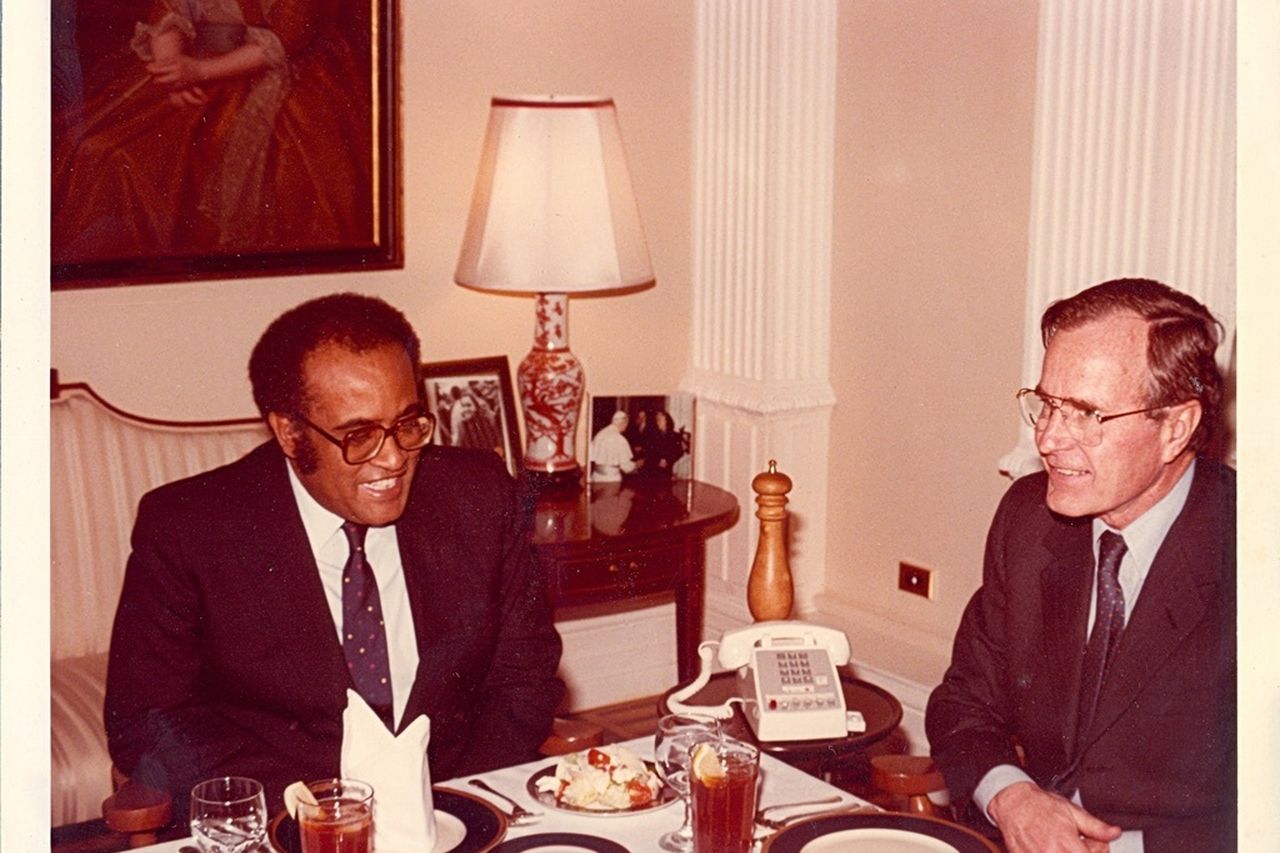
Service to Tanzania
After a decade at the United Nations, Dr. Salim was appointed minister of foreign affairs, marking his return to the Tanzanian government and his first position in Nyerere’s Cabinet. He represented his country as its top diplomat for four years. Despite no longer being based in the UN corridors, his name was floated as a potential successor to UN Secretary-General Kurt Waldheim. However, despite a public campaign and pressure, Dr. Salim issued a statement stepping aside in the balloting for the UN job on 9 December 1981.
After the unexpected death of Edward Sokoine on 12 April 1984, who was prime minister at the time, Dr. Salim was appointed prime minister of the United Republic of Tanzania. This unique position propelled Dr. Salim to the national stage and allowed him to travel throughout the country and engage with Tanzanians. Naturally, given such an appointment and his close ties to Mwalimu, speculation was rife that he would succeed the Father of the Nation to become the next president, in the 1985 ruling party presidential primary.
But as would unfortunately become the norm for Dr. Salim, his service to the nation and patriotism would be undercut and undermined when it came to seeking the country’s highest office. This would happen again in 1995, and again in 2005. But despite all the travails and challenges that Dr. Salim faced, his patriotism never wavered, and his sense of duty never diminished.
The Pan-Africanist
Soon after President Ali Hassan Mwinyi was elected, Dr. Salim was appointed deputy prime minister and minister of defence – a position he would serve until he became secretary-general of the Organisation of African Unity (OAU) in 1989. The campaign and subsequent position in the OAU wasn’t something Dr. Salim sought out, nor did he expect it. In fact, it was the leaders of liberation struggles he fought hand in hand with who pushed for his candidacy and for the Tanzanian government to release him to contest the position. Then-Zimbabwe President Robert Mugabe was particularly a strong advocate.
Dr. Salim was elected secretary-general of the OAU on 27 July 1989 with more than a two-thirds majority. The tasks and challenges ahead were daunting – the organisation's dwindling finances; ending apartheid in South Africa; seeking to unite the continent; mending regional and linguistic divisions that had undermined the organisation; and repositioning Africa in the post-Cold War order.
Dr. Salim served as secretary-general of the OAU for an unprecedented 12 years, with many highs and many lows. The highs included helping dismantle apartheid in South Africa, and creating the necessary conditions for a conflict-resolution mechanism in the OAU (and later the African Union) to allow Africans to solve African problems. The lows were daunting: the war in Burundi; the genocide in Rwanda; the Ethiopian-Eritrean war and tensions that preceded it; the broader conflict in the DRC; and regional conflicts and challenges across the continent.
The only way to succeed, at least from Dr. Salim’s perspective, was to transform the OAU, which was largely focused on supporting liberation movements across the continent. The organisation needed a new identity in the post-liberation era, while the archaic policy of non-interference in the internal affairs of member states had to be re-evaluated. This transformation, which was one of Dr. Salim’s lasting legacies, resulted in the creation and establishment of the African Union (AU), specifically the AU Peace and Security Council. This was a shift change for the organisation.
This shift change commenced when Dr. Salim began his term in office and was something he focused on throughout his tenure. One area that saw Dr. Salim’s imprint was moving the OAU away from being perceived as a club of heads of state and inapproachable to the wider community – he wanted to open the OAU to civil society and have more engagement with this sector. Though this was resisted by certain leaders, engagement with civil society increased over time.
In July 1990 Dr. Salim submitted his first report to the Council of Ministers as secretary-general, titled “The Fundamental Changes Taking Place in the World and their Implications for Africa: Proposals for an African Response”. His vision for the OAU was expressed in this report and although non-interference in the affairs of OAU member states continued to be observed, Dr. Salim felt it should not be construed to mean, or used to justify, indifference on the part of the OAU. This was the beginning of the principle of non-indifference, which became the central tenet of the African Union nine years later.
Dr. Salim concluded his term of office as secretary-general in September 2001, but this was not the end of his efforts to promote African unity and cohesion, nor his attempts to resolve conflicts across the continent: he was the AU special envoy to Darfur from 2005 to 2007 and was a member of the AU’s Panel of the Wise.
The Statesman
Dr. Salim’s twilight years have focused on conflict resolution, good governance and promoting the notion that Africans can solve their own problems. Post-AU, Dr. Salim had influence as a statesman, both at home and abroad. Many leaders – in Tanzania, Africa and internationally – sought his advice and counsel on an array of issues, and he used his platform to promote challenges and issues of great importance to him.
In November 2003 Dr. Salim was appointed by UN Secretary-General Kofi Annan as part of a group of eminent persons tasked with studying global security threats and recommending necessary changes and interventions. From 2007 to 2019 Dr. Salim served on the board of the Mo Ibrahim Foundation and subsequently was also chair of the Foundation's Prize Committee. The Foundation advocates for good governance and accountability among African leaders.
At home, Dr. Salim remained active in Tanzanian politics. His entry back into domestic politics was in November 2002 when President Benjamin Mkapa nominated him to become a member of the National Executive Committee of the ruling party.
In April 2005 Dr. Salim submitted his nomination form to contest for the Presidency under the ruling Chama Cha Mapinduzi (CCM) ticket. The campaign was grueling, with significant character assassinations and mudslinging. Yet, despite the challenge and formidable cards stacked against him, Dr. Salim made it to the top three candidates, along with Jakaya Kikwete and Mark Mwandosya. Dr Salim eventually lost out to Kikwete.
As per his style, Dr. Salim did not hold any bitter feelings after the campaign and continued to support his party with unwavering loyalty. Only a few months later, he was appointed as the AU special envoy to Darfur.
In 2011 President Kikwete appointed Dr. Salim to serve on the country’s Constitutional Review Commission, tasked with examining the country’s Constitution and recommending constitutional reforms. That process was completed in 2013, with a number of recommendations on how best to reform the country’s Constitution. In February 2013 Dr. Salim was appointed a member of the Central Committee (CC) of CCM – a position he held until retired from politics in 2018 after completing his five-year term as a member of the CC.
Dr. Salim’s position as a statesman transcended politics in Tanzania, while he also served as chairman of the Mwalimu Nyerere Foundation and chancellor of the Hubert Kairuku Memorial University; and served on many observer missions for general elections, including in Nigeria (2003), The Gambia (2006) and Rwanda (2010).
Despite retiring from politics in 2018 Dr. Salim continued serving his country and Africa until falling ill in January 2019.
